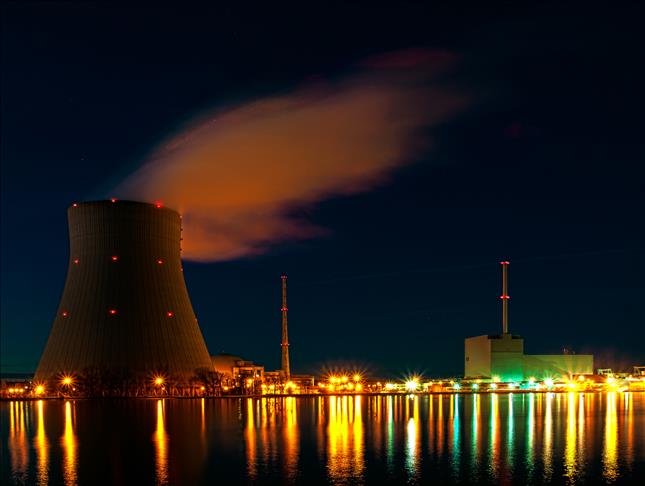Nuclear Power: A political dilemma for Finland
As the Greens leave the ruling coalition over their objections to a nuclear power plant, the Finnish goverment prepares for a debate on Finlands nuclear future.

ANKARA
by Murat Temizer
Fears that a new power plant in Finland partly owned by Russian energy giant will increase Finnish energy dependency on Russia, triggered the Green Party to leave the Finnish governing coalition last week, reducing the government majority to two seats.
The Greens say that Rosatom is no ordinary company because it is owned by the Russian state and is under direct control of the Kremlin. "Energy has never been just business to Russia, but is always a matter of power and politics as well," said a spokesperson from the Green Party.
Initially, the new power plant was meant to reduce our energy dependency on Russia say the Greens.
"Now it turns out that it will increase our dependency," the spokesperson from the Green Party said.
Not only the €6 billion cost of the plant but also environmental hazards of nuclear power are what the Greens object to.
They are also worried that it will reverse a recent trend of relying less on Russia, by importing energy from other Nordic countries.
Nuclear power has traditionally been seen as a cheap and efficient way of producing energy in Finland, said Veikka Lahtinen, a researcher from Finnish think-tank Demos Helsinki. "So many skeptics say that nuclear power is costing Finland more than the benefits it can potentially provide".
A quarter of Finland's energy needs are met by nuclear power.
There are plans to complete two new nuclear reactors. Olkiluoto 3 project has been struggling and is currently said to start producing electricity in 2018, nine years later than originally planned. On the other hand, the most recent "controversial" project, Hanhikivi's construction will start in 2018 and commercial operation of it will start in 2024.
The Finnish coalition sees nuclear energy as a relevant part of the future energy market in Finland.
On 26 September, Alexander Stubb, Finnish Prime Minister, will present the new ministers who will come from the four remaining coalition parties to replace the departing Greens.
Now, Stubb has 101 seats out of 200 in the parliament. Finland’s next parliamentary elections will be held in April, 2015 and observers say that elections are likely to be brought forward because of ruling coalition’s weak majority.
Anadolu Agency website contains only a portion of the news stories offered to subscribers in the AA News Broadcasting System (HAS), and in summarized form. Please contact us for subscription options.

